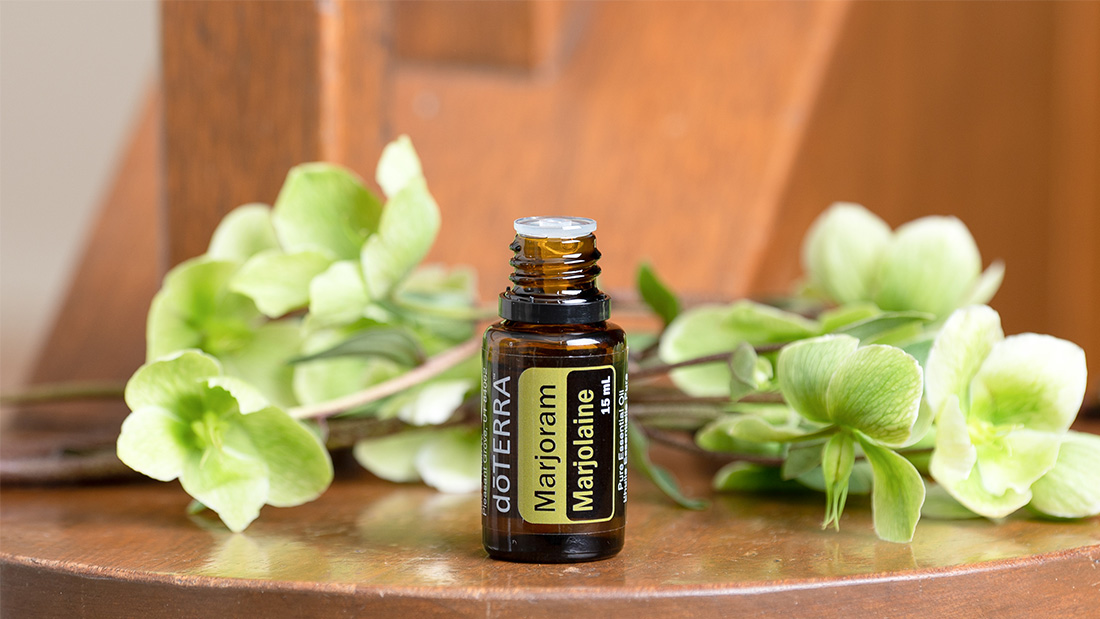Origin: a Latin derivative
meaning "Gift of the Earth."
Marjoram Oil Uses and Benefits

Marjoram Oil Product Description
Also known as “joy of the mountains,” Marjoram was known to the Greeks and Romans as a symbol of happiness. Today, Marjoram is highly valued for its aromatic, topical, and flavourful properties as an essential oil. The delicious herbal flavour of Marjoram essential oil can be used to spice up stews, dressings, soups, and meat dishes. Aside from its culinary uses, Marjoram oil is also admired for its calming aroma, whether you incorporate it in a personal massage or diffuse this warm, woody oil to create a relaxing environment. With a long list of practical uses and benefits, you’ll want to keep Marjoram oil as a staple in your essential oil collection.
How do I use Marjoram oil?
- Home Cooking: Marjoram essential oil makes a great substitute for dried marjoram and adds a warm, herbal flavour to your favourite marinades, seasonings, bread dips, or fresh recipes like this kale apple salad.
- Evening Routine: As you go about your evening routine, apply a couple drops of Marjoram oil to the bottoms of your feet or the pulse points on your wrists for a calming scent as you wind down for the day.-
- Massage: For a pleasant, personal massage, gently apply one to two drops of Marjoram oil to the back of your neck and shoulders for a relaxing aroma and a soothing, invigorating effect on the skin.
- After Workout: After a fulfilling workout, reward your body by diluting Marjoram oil with Fractionated Coconut Oil and apply to desired areas for a refreshing sensation to the skin.
- Linen Spray: Create your own linen spray by combining a few drops of Marjoram oil and Lavender oil in a glass spray bottle with water and spritz on your sheets and linens for a tranquil fragrance.
- Diffusion: Add three to four drops of Marjoram oil to your favourite diffuser and delight in the warm, inviting aroma whether you are preparing for bed, spending a night in, or at the office.
Fun Fact
In Germany, the marjoram herb is known as the “Goose Herb” for its traditional use in roasting geese.
What is Marjoram oil?
Marjoram, Origanum majorana, is an herbaceous perennial member of the mint family that thrives in warm climates. The Marjoram plant produces tiny, tubular, white or pale pink flowers and has smooth, fragrant, ovate green leaves. These dried leaves can be used in cooking or be steam distilled to create the cherished Marjoram essential oil.
What essential oils blend well with Marjoram oils?
Especially when diffused, Marjoram oil blends well with Bergamot oil, Cypress oil, Lavender oil, and Rosemary oil to create an aromatically pleasing environment.
Cautions
Possible skin sensitivity. Keep out of reach of children. If you are pregnant, nursing, or under a doctor’s care, consult your physician. Avoid contact with eyes, inner ears, and sensitive areas. For external use only.



